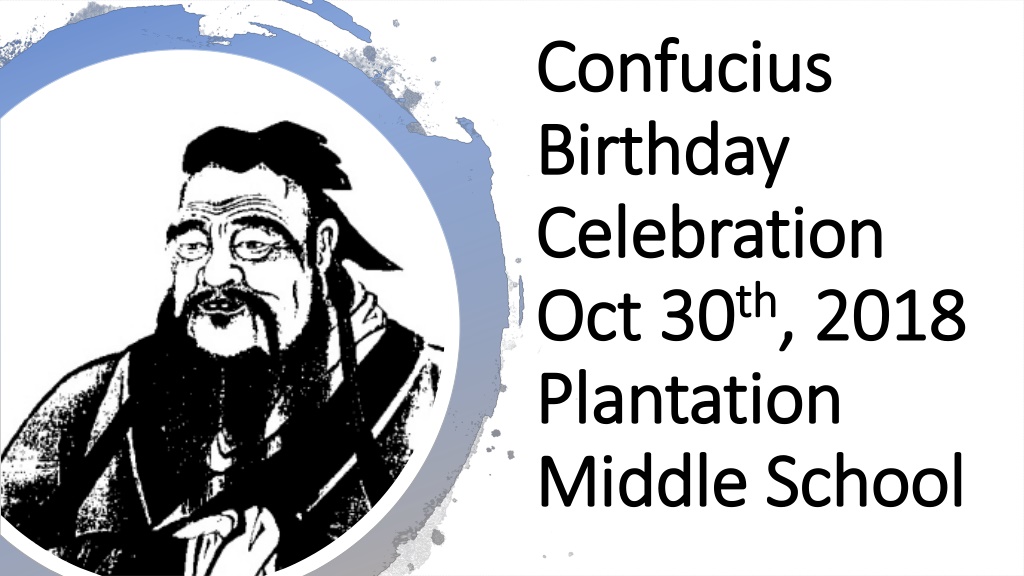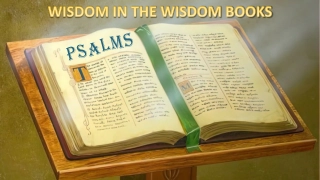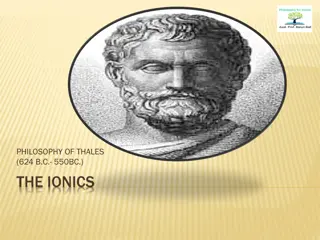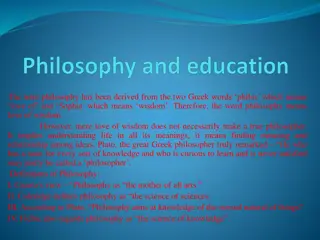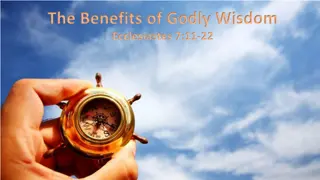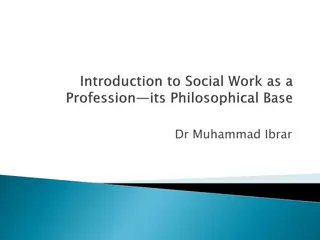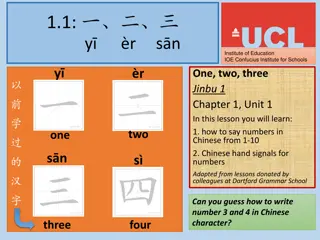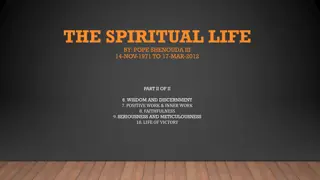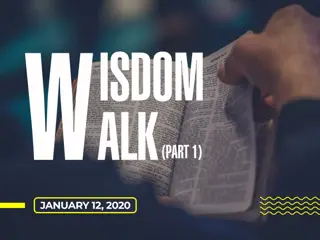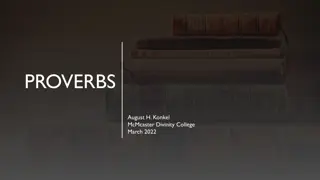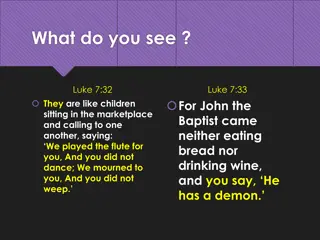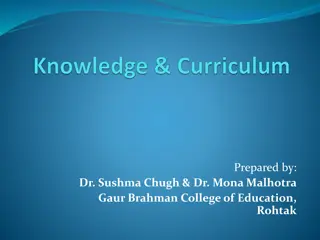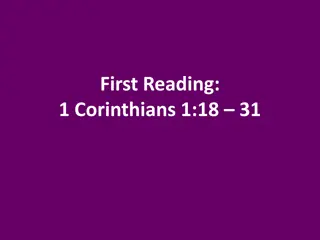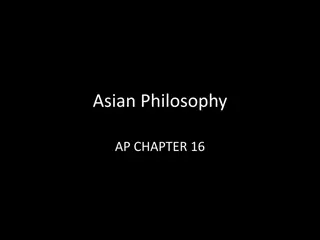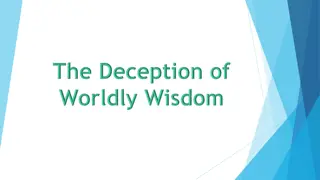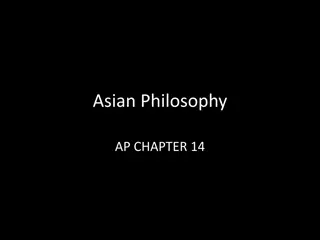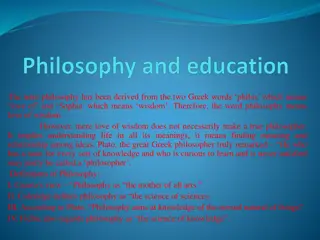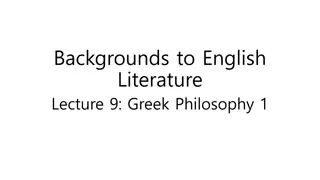Insights from Confucius: Wisdom and Philosophy
Explore the life and teachings of Confucius, a renowned sage and philosopher known for his emphasis on education, virtue, and self-reflection. Uncover the significance of Confucius ceremonies and his enduring legacy in history. Delve into timeless quotes that reflect his profound wisdom and principles.
Download Presentation

Please find below an Image/Link to download the presentation.
The content on the website is provided AS IS for your information and personal use only. It may not be sold, licensed, or shared on other websites without obtaining consent from the author.If you encounter any issues during the download, it is possible that the publisher has removed the file from their server.
You are allowed to download the files provided on this website for personal or commercial use, subject to the condition that they are used lawfully. All files are the property of their respective owners.
The content on the website is provided AS IS for your information and personal use only. It may not be sold, licensed, or shared on other websites without obtaining consent from the author.
E N D
Presentation Transcript
Confucius Confucius Birthday Birthday Celebration Celebration Oct 30 Oct 30th th, 2018 Plantation Plantation Middle School Middle School , 2018
Who is Confucius Who is Confucius Confucius (551-479 BC) was a sage, scholar, and philosopher. Confucius passed on his passion for education by emphasizing the importance of education. A slew of accolades, including a posthumous award of Supreme Teacher in 1AD, an imperial decree deeming him a "Grand Master" in 581AD, and the bestowing of the title Prince of Culture in 739AD led to Confucius continued popularity.
What is Confucius Ceremony? What is Confucius Ceremony? The Confucian ceremony has been traced to the Zhou Dynasty (1046BC-221BC). After Confucius death, ceremonies to honor him were held by Confucius' family members. Emperor Lu Aigong ( ) converted Confucius home in Qufu ( ), in Shandong Province, to a temple so Confucius' descendants could honor him. It wasn't until after Han Emperor Gaozu Liu Bang ( ) paid his respects to Confucius that all emperors began to worship Confucius. Confucian Ceremonies have been held regularly since the Han dynasty (206BC-220AD). During the Three Kingdoms Period ( ) (220AD-280AD), Emperor Cao Cao ( ) established the biyong ( ), an institute for teaching the emperor how to conduct the Confucius ceremony.
First Writing Ceremony First Writing Ceremony
1. What you do not wish for yourself, do not do to others.
2. Is it not pleasant to learn with perseverance?
3. ? Is it not delightful for friends to com from distant quarters?
4. Is he not a man of virtue, who feels no discomposure though men may take no note of him?
5. Examine myself three times every day.
6. If a man keeps cherishing his old knowledge, so as continually to be acquiring new, he may be a teacher of others.
7. Learning without thought is labor lost; thought without learning is perilous.
8. Virtue is not left to stand alone. He who practices it will have neighbors.
9. I will bot be afflicted at men s not knowing me; I will be afflicted that I do not know men.
10. You can learn from everyone.
Kung Fu Fan Dancing Calligraphy Performance Performance
